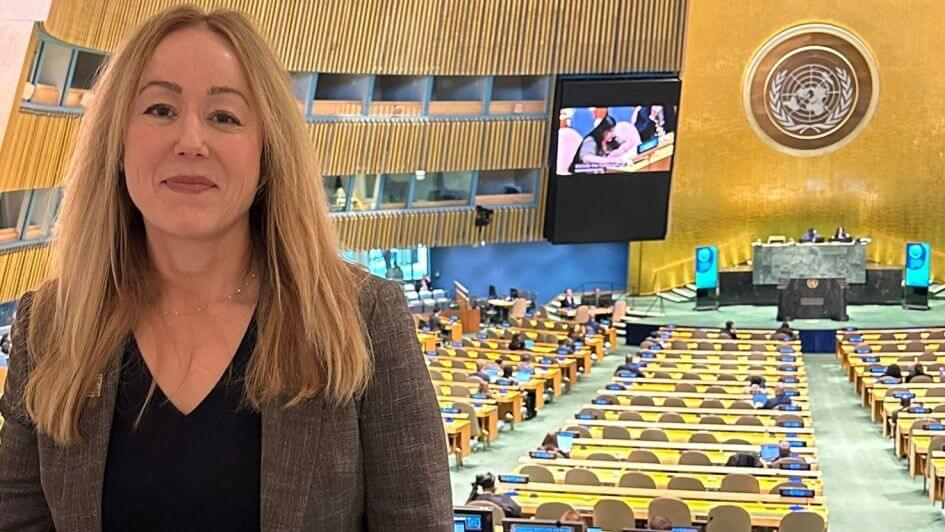Today, as we mark the 54th Earth Day, we must extend our focus beyond the environmental devastation wrought by plastics to the broader existential threats facing our planet. On Friday, Kristina Skierka, the CEO of Power for All addressed the United Nations General Assembly as part of the global stocktaking on Sustainable Development Goal 7 (SDG 7) – ensuring access to affordable, reliable, sustainable, and modern energy for all.
She highlighted the distributed renewable energy sector's (DRE) significant achievements in advancing energy access and combating energy poverty. Power for All, a coalition encompassing more than 500 partners, demonstrates the sector's transformative impact on energy consumption and generation. DRE technologies, such as mini-grids and rooftop solar systems, are now delivering more energy than any global utility, particularly in developing countries.
This sector not only facilitates energy access but also drives economic growth by providing meaningful employment opportunities, directly contributing to Sustainable Development Goal 8 on decent work and economic growth. Power for All's Powering Jobs Census research indicates that DRE generates more jobs than several national utilities in the Global South, with these roles often proving more resilient and offering greater opportunities than those in the traditional energy sector. This highlights the DRE sector's dual benefit in fostering both environmental sustainability and socio-economic development.
Indeed, SDG 7 is linked to two-thirds of the 169 SDG targets—without progress on energy, several other SDGs will continue to lag.
Yet, the path to fully realizing the potential of DRE is littered with systemic barriers—regulatory and financial disincentives that impede the sector's growth. A notable issue is the limited recognition of the private sector's role in achieving SDG 7. Companies striving for universal access must navigate a complex regulatory environment and are often denied the subsidies available to traditional energy approaches. Where funding is available, it is often mired in bureaucratic red tape. Between 2012 and 2019, donors committed US$1.6 billion to help scale the mini-grid sector in sub-Saharan Africa, yet just 13% (US$208 million) of that capital has been deployed.
To spur the growth of the DRE sector and ensure its integration into broader sustainability strategies, it's crucial to include decentralized renewables in national energy plans and adjacent sector strategies, such as agriculture and employment. Clear and consistent regulations, as well as mechanisms for DRE integration with centralized grids, are essential for sector growth. Additionally, Skierka's call for donors, foundations, and investors to release funds highlights the urgent need to mobilize resources to support the DRE sector. The convergence of Earth Day's emphasis on environmental stewardship and the global evaluation of SDG 7 offers a chance to advocate for policies and investments that expand the distributed renewable energy (DRE) sector, and bring reliable renewable energy and its numerous benefits to the 675 million people still without access.
By recognizing and harnessing the DRE sector's ability to provide sustainable energy solutions and meaningful employment, we can take significant steps toward a more sustainable, equitable, and resilient future. The time is now to embrace distributed renewable energy as the cornerstone of our sustainable development agenda, ensuring it remains at the forefront of efforts to achieve SDG 7 and beyond.
